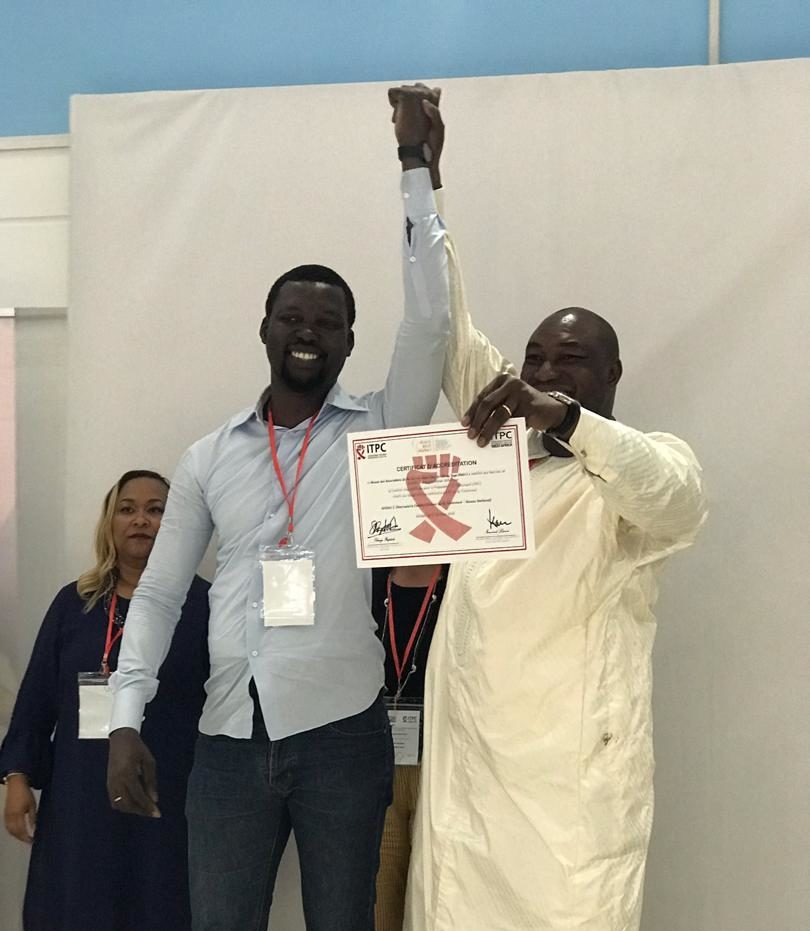Solange Baptiste, Executive Director, ITPC Global, delivers remarks at Communty Treatment Observatory Learning Event, Abidjan, Côte d’Ivoire, October 2019.
Please rise for a moment of silence to honor the lives of those who started off this journey with us but are no longer here. We celebrate them as part of our family. We could not get to where we are today without them; may they rest in power.
My name is Solange Baptiste and I am the Executive Director of ITPC Global. Thank you all for taking the time to join us for our Learning Event. We are here today to learn from our experience of setting up and implementing a Community Treatment Observatory for the region of West Africa. What started out as a regional community treatment observatory covering 11 West African countries is now a model for community-based monitoring anywhere in the world. As you can see from the video, colleagues in South Asia, Eastern Europe and Latin America have already adapted the model and are taking the lessons from West Africa to improve treatment access in their countries.
In 2014, activists flagged the issue of persistent ARV stock outs in West Africa and…out of sheer necessity…took pen to paper to capture when and which medicines were missing from their clinics. For two years the team worked on translating an ad hoc alert system into a comprehensive community monitoring model. Then, in 2016, we submitted a successful concept note to the Global Fund. Together with ITPC West Africa, 11 PLHIV network partners and the backing of 11 Country Coordinating Mechanisms (CCMs), today we have a well-designed model that moves from treatment education to evidence collection, right into targeted action and wide stakeholder engagement for the co-creation of solutions. The model, process and advocacy wins have been captured in our Data for a Difference publication and we feature in the October 2019 peer-reviewed academic publication of the Center for Social Science Research at the University of Cape Town, further proving the quality of our data and the value of community monitoring and activism!
All too often activism pits us vs them; but our model fosters a culture of collective problem solving among health care workers, decision-makers and recipients of care. Today, activism is as much about people marching in the streets as it is about the effective use of data collected by communities to improve service delivery. This level of rigor is often reserved for academics but with this model, we have proven what the community can do and dispelled the notion that what communities produce is somehow substandard and less valuable than other stakeholders in the HIV response.
Data was the tool in this model that allowed us to change this paradigm but communities were the ones that allowed us to build trust and co-create solutions. The beauty of this process is that we changed the way activists were perceived. Clinics were now calling to community data collectors and CTOs to help them identify gaps, gain insights into persistent issues and to push for policies to be enforced.
Today has been carefully designed to be day of learning and sharing…I challenge each of your to stretch your mind and think about how the lessons learned from this RCTO project can be applied at the local, national, regional and global levels and also to other diseases and issues. Think about activated communities monitoring budget flows for key population funding, primary health facility service delivery or even police violence and other human rights applications.
I further challenge you to reflect on how we can sustain the gains that have been made. Where does community-led monitoring fall in the context of our ever-changing world, in Universal Health Coverage or where does it land in the context of the Sustainable Development Goals?
When people think about this project, they often speak about the data, but the real stars behind the data are the communities, the PLHIV networks, the PEOPLE who did the work to gather and analyze the data and take the action. There is potential for so much more if there is more investment!
I could not be prouder of ITPC West Africa, the RCTO project team, our national PLHIV network partners. If you want to talk about Southern Leadership, here it is at your feet, from West Africa to the world!
